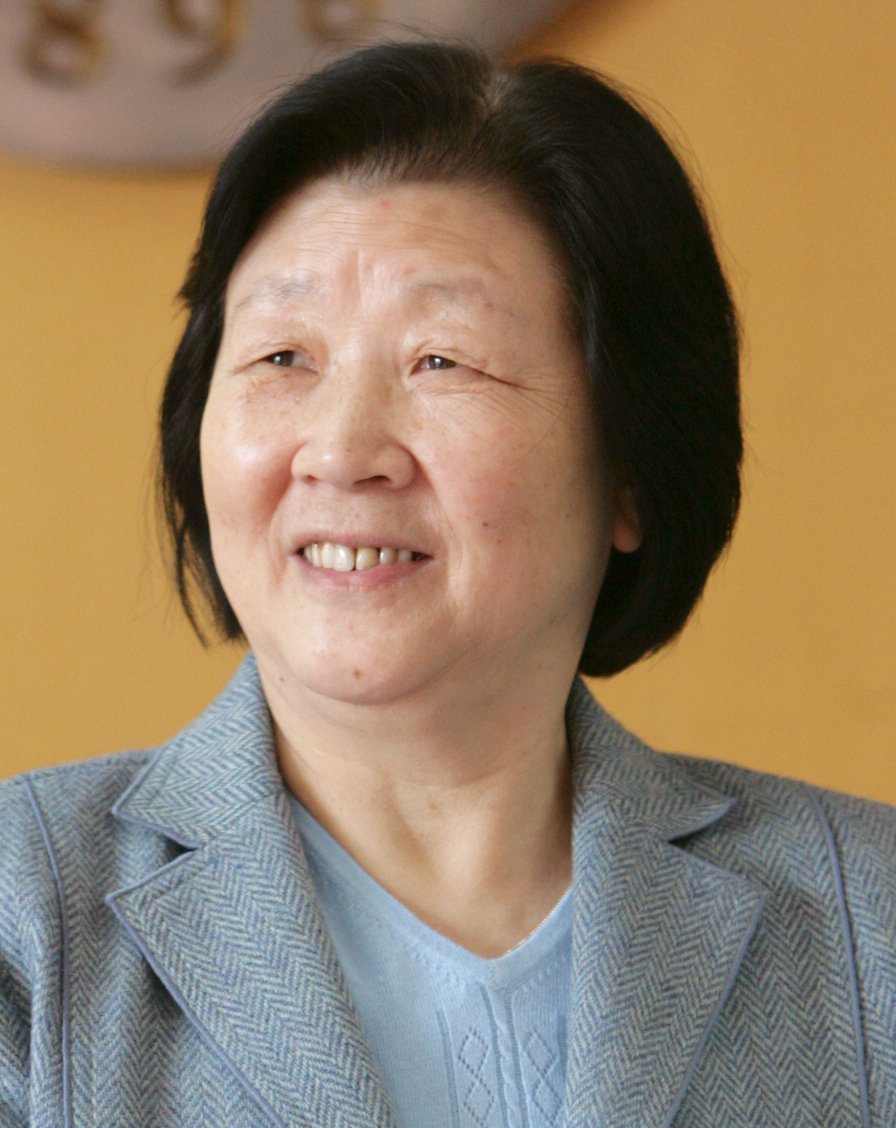Yang Fu Qing, Doctor of Science honoris causa

Renowned computer software scientist and educationist, Prof. Yang Fu Qing has obtained many national “firsts” in several areas such as system software, software engineering, software industrialized production technology and cultivation of talents. Prof. Qing was our country’s first graduate student of computer mathematics major. She campaigned to establish the Department of Computer Science and Technology in Beijing University becoming the first professor and doctorate supervisor of the Department; she supervised and successfully developed our country’s first multi-task operating system for a 106 integrated circuit computer, and the first operating system in China that was written completely in technical language. She established China’s first software engineering program and initiated the basic research area of software technology; based on her practice and experience in the research of operating systems, she compiled Management Program, which has become one of the first-generation textbooks for our country’s practitioners in computer system research.
As is known, as a professor of the Beijing University, Director of the Information and Engineering Science Department, Beijing University, and Director of the National Engineering Research Center of Software Engineering, Prof. Yang Fu Qing is a pioneer and leader in the national computer software field. She presided over the “Jade Bird Project”, which was a national key priority science project that has run over four five-year plans, over the research of several key research projects of the national 863 Program, founded the National Engineering Research Center of Software Engineering, proposed the notion of “interaction between talent fostering and industry development”, and established a model software school that runs in accordance with a new mechanism and a new mode. She’s published over 150 papers, 8 monographs, and fostered more than a hundred masters, doctors and post-doc students.
As early as in 1991, Prof. Yang was elected to be an academician of the Chinese Academy of Sciences, and in 2003 she was elected to be an IEEE fellow. Prof. Yang has also won a number of statelevel and ministry-level honors and awards, such as the National Science Conference Awards, the second prize of the National Science and Technology Progress Awards, the special prize of the Science and Technology Progress Awards, Ministry of the Electronic Industry, the first prize of the National Teaching Achievement Awards and the March 8 Red-Banner Collective Awards, the Ten Outstanding Women Awards of the Capital City, the National Higher Education Outstanding Science and Technology Workers Awards, the Outstanding Individuals Awards for the National Key Science and Technology Development Programs: the 7th Five-year Plan, the 8th Five-year Plan and the 9th Five-year Plan, the first prize of the “Guanghua Science and Technology Foundation” Awards, the Ho Leung Ho Lee Science and Technology Progress Award, and the Pan Wen Yuan Foundation Outstanding Research Award. Prof. Yang also holds many important academic posts, including the No.1 Convener of the discipline assessment team of the Academic Degrees Committee of the State Council, Vice President of the Chinese Computer Software Industry Association, member of the expert counselor team of the People’s Government of the Beijing Municipality, Senior Advisor of the Basic Science Institute, Bell Laboratories (China), and also Associate Editor inchief of Science in China, Chinese Science Bulletin and Chinese Journal of Electronics.
The Preface to the Teng Wang Pavilion writes, “to never cease pursuing aspirations even when the hair is gray, and to never stop persevering even when living in adversity”, which beautifully depicts Prof. Yang’s unwithering perseverant scientific spirit and willpower. In the 1960s, when our country started from scratch in the field of computers, we sent out a delegation to the Soviet Science Academy to study computer technology and program design in the hope of developing China’s own computers. This, however, deviates to some extent from the basic mathematics and computer mathematics that Prof. Yang had been studying; when such a big mission fell on her shoulders, she did not hesitate to take up the appointment and said that “as long as this is what our country needs, I should do it and must do it well.” She then committed herself to a brand new disciplinary area – computer software science; later, she was again instructed to transfer to Moscow State University Faculty of Mechanics and Mathematics to study program design automation. Years later, when Prof. Yang’s son was just one year old, she received instruction from the Beijing University saying that she was chosen to be sent to the Soviet Union to work in the Joint Institute for Nuclear Research. Thus, in order to contribute to the development of the relevant areas of our country, she once again went to the Soviet Union and worked in the Dubna Joint Institute for Nuclear Research in charge of science computation. In 1969, the State Council commissioned the Beijing University an unprecedentedly challenging task: to develop the DJS 150, a 106 per second integrated circuit computer. Prof. Yang accepted the great challenge and was appointed to develop the operating system for the computer. More importantly, even faced with the adversity of severe shortage of the reference research literatures and facilities, she accomplished the mission successfully and amazed the entire nation. In 2001, the State Development Planning Commission of the People’s Republic of China and the Ministry of Education issued a notice on running a pilot model software school. Despite the fact that she was almost in her 70s, Prof. Yang immediately took up the challenge and devoted herself to the preparation for establishing the School of Software, Beijing University. In 2012, at the 10th Anniversary for the School of Software and Microelectronics, Beijing University and the Opening Ceremony for the First Doctors in Engineering, 80-year-old Prof. Yang set out the new objectives and vision for Beijing University with respect to the educational mode for the program of doctor in engineering.





